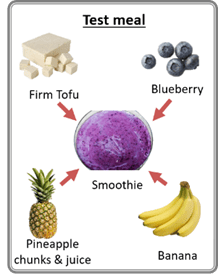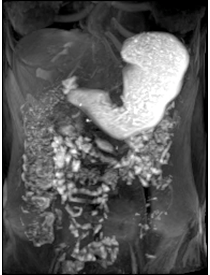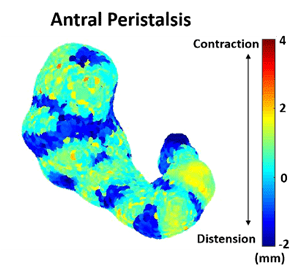Gastroparesis, or paralysis of the stomach, refers to a stomach that empties slowly. Gastroparesis is characterized by symptoms by bloating, nausea, vomiting and feeling full after eating only a small amount of food. Some patients can be quite sick with nausea, retching, vomiting and weight loss requiring ER visits and hospitalizations. Gastroparesis can occur as a result of several conditions, especially in people with diabetes. However, the cause of gastroparesis is not known in many patients. It is more common in women than men.
Investigators
Open Research Studies for Gastroparesis
Magnetic Resonance Imaging of the Brain and the Upper Gastrointestinal Tract in Healthy Volunteers and Patients with Gastroparesis
Enrolling: No
Principle Investigator: John M. Wo, MD
Primary Outcomes Measured: Compare 3D--dimensional gastric peristalsis progression before & after test meals in healthy volunteers and patients with gastroparesis
Secondary Outcomes Measured:
- Compare colored 3-D heat map of stomach contraction frequency before & after test meals in healthy volunteers and patients with gastroparesis
- Compare pylorus mean opening diameter before & after test meals in healthy volunteers and patients with gastroparesis



Interested in this study? Please contact the coordinator below:
Maureen Schilling
Effect of Electrical Stimulation of the Auricular Branch of the Vagus Nerve (ABVN) on Cervical Vagus Nerve Compound Action Potentials- Phase 2
Enrolling: Yes
Principle Investigator: Thomas V. Nowak, MD
Duration: TBD
Primary Outcomes Measured: To measure the amplitude of vagal nerve compound action potentials in gastroparetic subjects with symptoms of nausea and vomiting with skin electrodes over right and left vagus nerve during ABVN stimulation and also during the vagal maneuvers phase.
Secondary Outcomes Measured: To measure changes in the amplitude of the surface electrogastrogram during ABVN and also during the vagal maneuvers phase.
Interested in this study? Please contact the coordinator below:
Maureen Schilling


